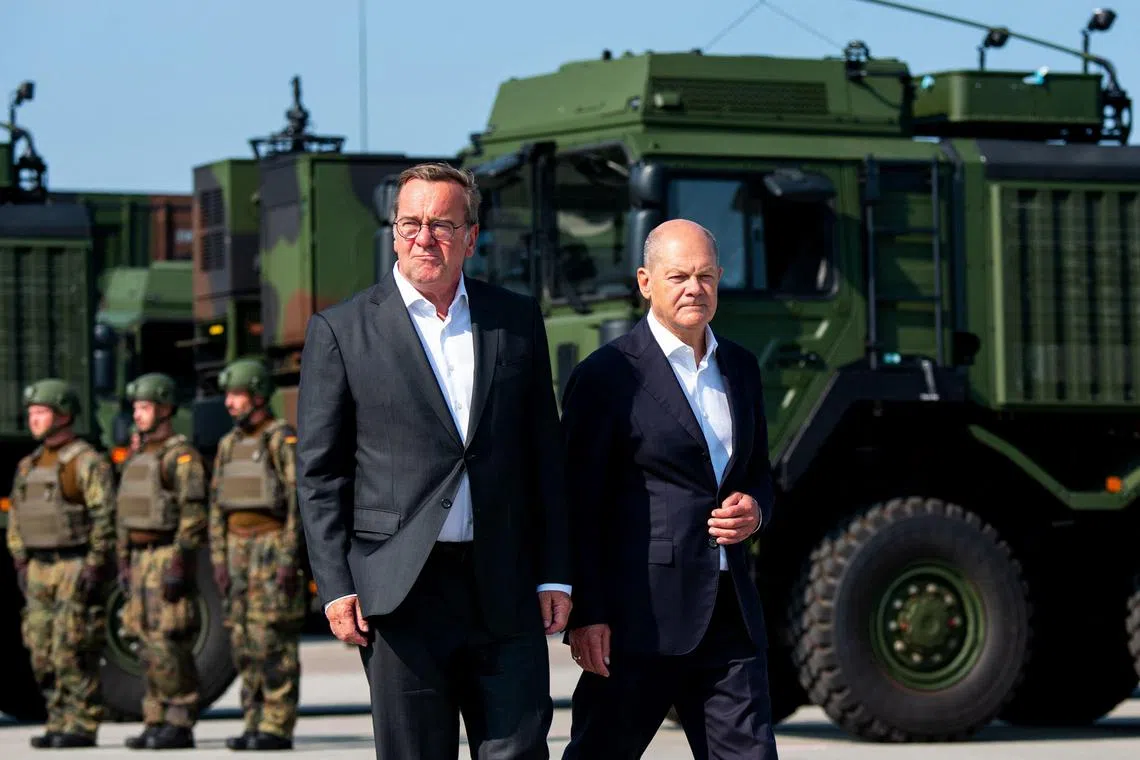Germany may expand military to 230,000 troops in Nato push
Sign up now: Get ST's newsletters delivered to your inbox

Defence Minister Boris Pistorius (left) and Chancellor Olaf Scholz visiting a German military base in November 2024.
PHOTO: AFP
BERLIN – Germany may increase the size of its armed forces to 230,000, up from the current target of 203,000, Defence Minister Boris Pistorius said on Dec 18, as the Nato alliance looks to boost its strength after the Russian invasion of Ukraine in 2022.
Germany’s armed forces, or Bundeswehr, now has some 180,000 personnel in uniform, around 20,000 short of the current target as it has been struggling for years to recruit people.
“We are planning to raise the number of uniformed personnel to 203,000, and probably heading rather in the direction of 230,000 due to Nato’s capability targets,” Mr Pistorius told Parliament in Berlin.
Nato is set to agree new and more demanding targets for the number of allied forces and weapons in 2025, reflecting what the alliance sees as a deterioration of the security situation since Russia’s full-scale attack on Ukraine.
Reuters has previously reported that Nato planners believe the alliance will need between 35 and 50 extra brigades to withstand a Russian attack. A brigade consists of 3,000 to 7,000 troops, which would mean anywhere from 105,000 to 350,000 soldiers.
Under this scenario, Germany – which usually provides around 10 per cent of Nato’s capabilities – would need three to five extra brigades or 20,000 to 30,000 additional combat troops. That is effectively one more division on top of the three divisions Berlin is working to equip at the moment.
The Defence Ministry in Berlin has declined to comment on classified plans.
Chancellor Olaf Scholz’s government ramped up military spending after the Russian invasion, bringing its defence spending into line with Nato targets for the first time in decades. But questions remain over how to maintain such spending.
Budget rows toppled Mr Scholz’s three-party coalition


